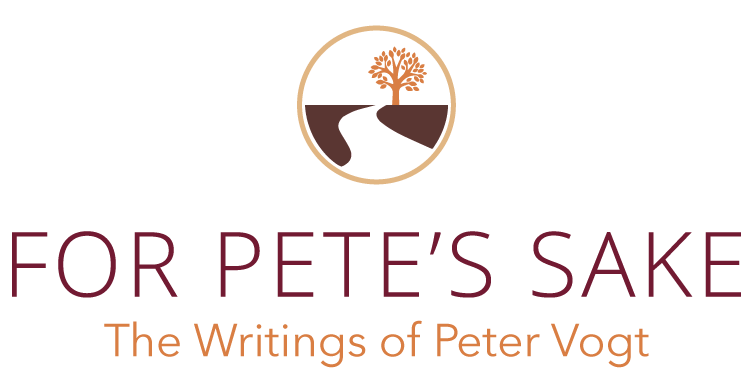As a Writer I Must Write – Whether Anyone Is Reading Or Not
My worst fear as a writer is that I will invest a bunch of my limited time and energy into writing something — putting my heart and soul and mind into every word — and no one, not a single person, will read it.
My second-worst fear is that someone will.
So — here I am: Feeling the fear and writing it anyway, wondering if my words will simply disappear into the ether or, almost as bad in my mind, cause someone to disagree with me or get angry with me or become confused or some other calamity that my brain conjures up.
When it comes to scenario one, I can only think that I’m dealing with the writer’s version of the old tree-falling-in-the forest question: If a tree falls in the forest and no one is there to hear it crash, does it make a sound? My equivalent: If a writer writes something and nobody is there to read it, do the words actually accomplish anything? Or has it all been a waste?
Scenario two, meanwhile, is the writer’s version of the old saw “be careful what you wish for — you just might get it.” Someone may indeed actually read what I’ve written and react badly, even if my intent is to simply get people thinking and perhaps convince them to operate in new ways that will help them in the long run.
What to do? What to do?
I have no choice: I must take the risk and write. All writers must take the risk and write, whether anyone ever reads their words or not.
If no one ever reads my words, I still benefit personally from having written them. For I have expressed myself, letting something out that needs to be let out and, through this catharsis, perhaps even gaining some clarity on an issue that wouldn’t have come to me in any other way. Why do I write in my journal? It’s certainly not for the audience of zero; it’s for me, and that’s enough.
If, on the other hand, someone does read my words, well thank goodness: At least someone’s interested! And the chances are just as good that people will like what I’ve written and benefit from it vs. hating it and giving me nasty feedback about it. In fact, it’s more likely that people will come to know my benevolent intent through my words (explicit and implicit) and give me the benefit of the doubt even if they do happen to disagree with me. Internet trolls aside, most people agree respectfully and disagree respectfully. And who knows: When people disagree with my words, I may actually learn something and change my own attitudes and actions for the better.
If you, like me, are a writer, then you must write, knowing that no one may read your words but at the same time working hard (particularly through the almost unfathomable power of today’s social media) to make sure people do. Painters must paint under the same conditions, and musicians must make music.
You — and I — must write. Otherwise, as Oliver Wendell Holmes once put it, we risk dying with our music still in us.

I’m a writer. An essayist, to be more exact. I tell stories here—true stories, from my own life, in hopes they will make a positive difference in yours.
I share laughs and tears, insights and observations, frustrations and realizations, relying all the while on the storytelling wisdom of Julia Cameron, author of The Right to Write.
It is a great paradox that the more personal, focused, and specific your writing becomes, the more universally it communicates.

Leave a Reply
Want to join the discussion?Feel free to contribute!